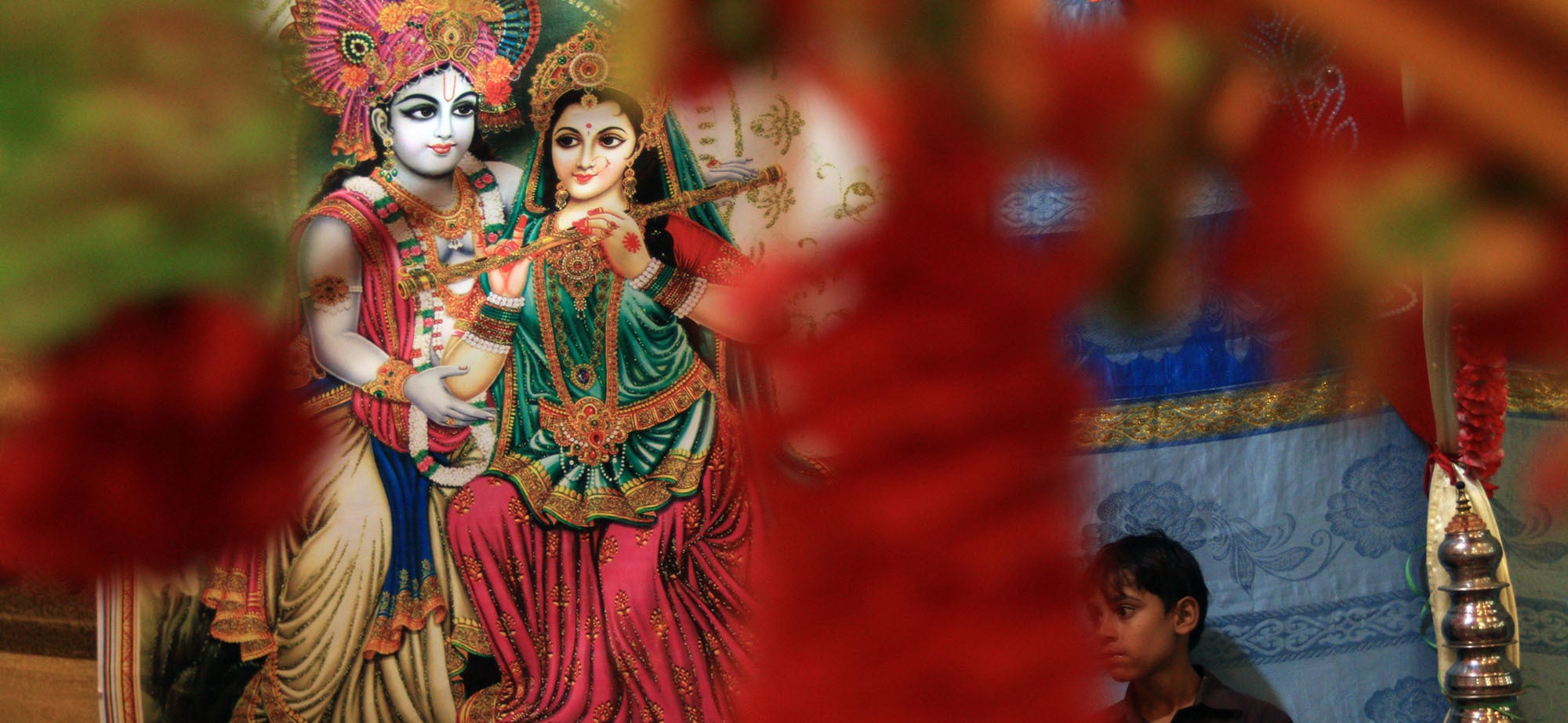Entering the marriage hall is like walking inside a shaadi scene from an old-school Bollywood film. The bride’s sakhian (friends) run around and giggle. There is an overdose of festive colours and floral decorations. The event looks more like a funfair than a wedding, thanks to the 2,000 guests in attendance.
There is one key difference between the weddings on screen and this particular ceremony though: this is a mass marriage where multiple couples are simultaneously tying the knot.
The 15 couples, all from lower-income Hindu households, could not have imagined that they would be wedded in such style. But thanks to the Odero Lal Welfare Organisation, and various other social groups and individuals who have helped finance the ceremony, the brides and grooms feel like royalty on this winter eve.


Sporting handmade jewellery, a unique sehra (headdress) and a red waistcoat, one of the grooms, Ramchand, is over the moon.
“Everyone is looking at my clothes and ornaments,” the bus conductor gleefully says.
Ramchand has big dreams for the future. He hopes that one day he will be promoted to the position of a driver, and will be able to provide a better life for his future wife and family.
As the grooms wait outside, the brides are getting ready for the big day. The jubilation at the dressing room is palpable. Make up volunteers are giving the brides updos. There is chatter, and a sense of urgency to quickly give the women picture-perfect looks on their big day.


Outside, Raju Baba, the lead organiser of the event, is meeting with the attendees. He tells Dawn.com that people contributed different amounts, from modest Rs50 to larger donations, to make all this a reality.
“Not only Hindus, but our Muslim brothers have also contributed,” he says.
The organisers sent the brides gifts worth Rs35,000 each, along with “unlimited prayers,” he adds.

Initially, Beerba, a brother of one of the grooms, found it odd that the wedding ritual of saath phere (seven vows) will be performed in a mass event. He opened up to the idea only after he learned that 14 other couples and their families were already on-board.
He is now happy to be welcoming his Bhabi (sister-in-law) at the event.
Soon enough, it is time for the pheras. Most grooms are sitting in the mandap (temple porch) while holding handkerchiefs on their mouths. This is believed to be a good omen and is said to create calm during the marriage rituals.


Their brides join them shortly, and the vows begin. Women shower rose petals as Pandit Kanya Lal recites the seven vows aloud and the couples take rounds around the consecrated fire.
Many grooms’ mothers and other female family members have been fasting all day to bring the couple good luck. After the ceremony, they break their fasts by drinking water.


This night is only possible because of the generosity of the community.
Ustaad Babu, the caterer for the night, has provided the meals at a 50 per cent discount. “I believe in humanity, I do not see any caste or religion,” the elderly man tells Dawn.com. “When I came to know that they are buying this huge amount of food for a mass marriage, I just [had to help out]”.
Right before the rukhsatis, Ramesh Kumar Vankwani, a key patron of the Pakistan Hindu Council, announces another Rs10,000 for each bride.
Recognising the big financial undertaking marriages, specifically in our part of the world tend to be, Vankwani, who is also an MNA, goes on to encourage joint marriage ceremonies.
All photos are by the author.







